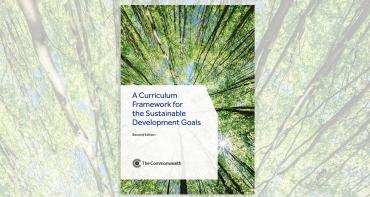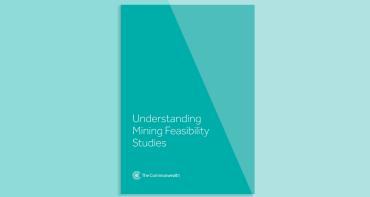Is there merit to an aid system focused on vulnerability? What problems could arise with the Caribbean Development Bank's proposal for the Caribbean? Travis Mitchell, Head of Economic Policy and Small States invites your thoughts.

Like a “stuck record” the Commonwealth Secretariat has banged on for a number of years about the need for international financial institutions (IFIs) to consider vulnerability as a criterion when allocating concessional finance. Such has fallen on deaf ears, it seems, largely because of geopolitical and other pragmatic considerations.
The biggest challenge has been a small and dwindling aid budget, which up to this point hasn’t been able to overcome the lingering problems of poverty and fragility. Despite years of progress on poverty eradication, a large proportion of the world is still very poor, and with terrorism a threat to a majority of the world’s richest countries, the issue of maintaining peace and security has creeped up the aid agenda.
The reality is that many of the world’s smallest and most vulnerable countries possess income per capita that are amongst the highest in the world. It is therefore hard for IFIs to justify, even with the climatic catastrophes witnessed recently, an allocation of global concessional finance to combat vulnerability. After all, achieving resilience to vulnerabilities is just as much about improving countries own institutions and policies, as it is about their access to cheaper finance.
Nevertheless, if indeed climate change promises more frequent and powerful disasters, then do IFIs in fact have to rethink aid priorities? And is it the case that vulnerability could now be as important as global poverty? To put this in perspective, one only has to look as far as Dominica. The country lost almost its entire capital stock in less than a day. Should such category 5 storms become the norm, it is easy to see that existing insurance and rapid response facilities will in essence be insufficient for rescuing afflicted countries. The international community will instead have to be proactive, and provide the financial support needed to help countries improve policies and building standards etc., ex-ante. In the Caribbean, the need for such financial assistance is clear. Countries in this region are highly indebted to the point where there is limited to no fiscal space to address climatic shocks.
In this vein, the Caribbean Development Bank (CDB) is commended for its latest initiative. Based on available information, the CDB is currently the only development institution actively seeking to include vulnerability as a criterion for access to development financing. The institution has always considered vulnerability when making decisions regarding development financing allocations. However, they are currently drafting a paper on a CDB vulnerability-resilience framework to articulate ways in which the CDB could formally link vulnerability to its development financing envelope and policy framework.The CDB has shown particular interest in linking vulnerability with disaster relief, and envisions a special fund geared towards that function. The Commonwealth has been made to understand that the paper on the CDB vulnerability-resilience framework will be put to their Board in May and made available to the public to read and comment, with a medium-term view to actual implementation. The proposed disaster relief fund will be presented to the CDBs Board later in the year.
A quick scan of the CDB proposal reflects very close alignment with the Secretariat’s own vulnerability-resilience framework, which it has been advocating to the international community for some years.The CDB will focus on economic, social and environmental vulnerabilities, and will seek to establish a link between the CDB’s financial support and the adoption of resilient policies across its member countries.
CDB’s move is extremely positive, and could hopefully be the catalyst for a serious international conversation on vulnerability and development financing. Should the CDB’s Board approve the new framework, the entire international community will be closely watching its implementation.
Do you think there is merit to an aid system focused on vulnerability? What problems could arise with the CDB proposal for the Caribbean?
Post your response to: [email protected]
Travis Mitchell
Head of Economic Policy and Small States (Ag.)
Commonwealth Secretariat



